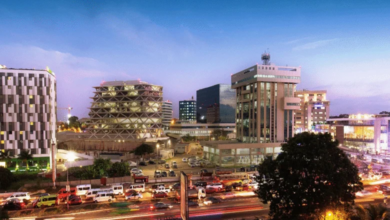Namibia : after the collapse of Air Namibia, an aviation future being rebuilt
Four years after the liquidation of Air Namibia, the country is turning the page and looking to the future. The Namibian government is now considering the creation of a new national airline, in a context of redefining economic priorities and renewed ambitions for regional connectivity.

By YG
At the occasion of the 80th Annual General Meeting of IATA, which brings together airline leaders from around the world to discuss current and future air transport issues, Xavier Masule, former interim CEO of Air Namibia and now Group Chief Financial Officer at AirlinePros International, spoke about Namibia’s particular situation after the disappearance of its national carrier.
It was in 2021, amid global uncertainty, that Namibia decided to end the story of Air Namibia. “During Covid, Namibia shut down its airlines. That’s over. They now want to create a new airline,” explains Xavier Masule. The national carrier operated about 10 aircraft, including Airbus (for long-haul flights, notably to Germany) and Embraer (Brazilian planes adapted for regional routes). The closure of Air Namibia left the country without a national airline.
Namibia, a country apart
Namibia occupies a unique position in Africa. Sparsely populated and vast, it is distinguished by strong economic nationalism. The loss of a national carrier directly affects the country’s strategic infrastructure. “Aviation infrastructure is a large part of the country’s infrastructure. It is important to have one to not depend on other countries,” says Xavier Masule. Regarding visas, Namibia relies on policies of controlled openness. “Many Africans do not need a visa. There is reciprocity management for visas; if one country requires a visa, the other also requests one,” explains Masule, highlighting a pragmatic geopolitical stance.
A fragmented African sky
Restoring connectivity poses challenges. Some African capitals remain difficult to access from Windhoek, the capital. “Many cities don’t have direct flights. Sometimes it’s because of lack of infrastructure. Traffic volume is low and that’s why there aren’t many flights,” notes Xavier Masule. However, between Namibia and South Africa, flights are frequent due to close ties: tourism, health, education, culture, and shared families. Despite these needs, costs remain a barrier: “If you compare ticket prices, tickets in Africa are more expensive than on other continents because costs are higher: fuel, landing fees are high,” he emphasizes.
What future for Namibian aviation?
A restructuring of Air Namibia could have been possible, but the government had to make a difficult choice. “It was possible to restructure the airline. The government had to choose between priorities,” he says with clarity. He also stresses the need to review taxes on personal imports: “If I buy products from another country, since I’m Namibian, I have to pay taxes. I shouldn’t pay taxes on these purchases. It’s trade; I didn’t buy a lot to sell, it’s more for my personal pleasure.”
To revive air transport, stronger regional cooperation will also be necessary. Many African governments want to welcome foreign airlines but under conditions. “Governments want companies to enter their country but want to keep control. Some only do it to protect their own national airline,” states Xavier Masule. The disappearance of Air Namibia has not ended the aspiration to connect its territory to the rest of the continent—on the contrary—but the means deployed remain minimal…






